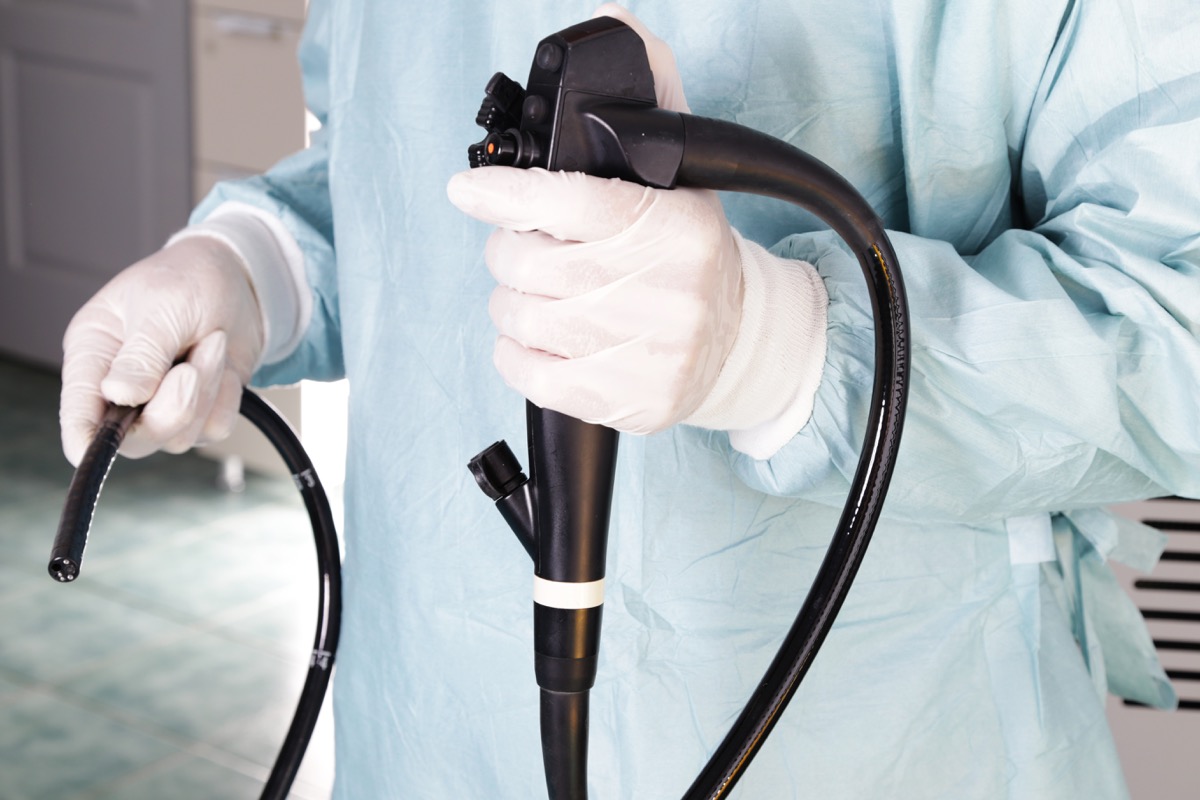Is a Colonoscopy Every 10 Years Necessary?
Every year, approximately 150,000 Americans are Diagnosed with colorectal carcinoma. Despite the stark stats, they are also significant. There was a marked drop in overall cases Thanks to the widespread use of colonoscopy (and other screening tools) in the 1980s, the number of cases has increased steadily since then.
Colonoscopies are a great way to prevent colorectal carcinoma. It is possible to detect it in its precancerous stageThe Centers for Disease Control and Prevention explain. “Colorectal cancer almost always develops from precancerous polyps (abnormal growths) in the colon or rectum. Screening tests can find precancerous polyps, so that they can be removed before they turn into cancer,” The health authority provides these notes.
How often should you have a colonoscopy performed? A new study suggests that only a few groups might not require the procedure every ten years. However, not all doctors agree. Two leading experts in the field say colonoscopies still have a place in society.
Doctors have recommended that all adults over 50 receive regular colonoscopies every two years to check for any signs of colon cancer or polyps. Today, the Centers for Disease Control and Prevention recommends that all people should have regular colonoscopies. Between 45 and 75 Should undergo colorectal screening for cancer, which could include stool tests, flexiblesigmoidoscopy and CT colonography.
Although many tests are performed every five years, doctors recommend that colonoscopies be done every ten years. A 2018 study in the journal however shows that colonoscopies can be performed every 10 year. Cancer Epidemiology, Biomarkers & PreventionJust 67 percent of Americans older than 50 years were considered. Stay up-to date on screening.
READ THIS: The “Controversial” The Way Ben Stiller Discovered That He had Cancer.

The current guidelines suggest that you should have a colonoscopy at least once every 10 to 15 years. However, a Jan.2023 study was published in JAMA Internal Medicine Some people may be able, even if they have had negative colonoscopy reports in the past. You can extend the time between screenings.
The study authors also noted that they had reviewed data from 120,098 German subjects. Advanced neoplasms Women were 40 percent more likely to have their colonoscopy performed than men. The prevalence of colonoscopy failures in women under 75 years old was particularly low for those who had not had a negative colonoscopy within the past 10 years. This led to the conclusion of the research team that “women at younger screening ages with no finding at index colonoscopy could possibly be screened at prolonged intervals or, alternatively, be offered less invasive methods, such as stool tests, while maintaining the 10-year interval for men and women at older ages.”

Some doctors disagree with the findings of the study and recommend that older adults continue to have colonoscopies every ten years.
“The most important piece of information from this large study out of Germany is the effectiveness of a repeat colonoscopy 10 years after the prior one that showed neither cancer nor polyps,” Says Xavier LlorDr. Judith A. Sullivan, MD, PhD, Medical Director at the Colorectal Cancer Prevention Program. Yale School of Medicine. “These patients remained at relatively lower risk for advanced polyps and cancer in 10 years. In this sense, this is confirming current approved guidelines,” He says it. Best Life.

According to experts, regular screening is actually beneficial for everyone. Gary H. Hoffman MD, FACS is an attending surgeon and Vice-Chairman of Staff at Cedars Sinai Medical Center. “A colon exam of some type should be performed every five years,” The doctor is also a senior associate. Los Angeles Colon and Rectal Surgical AssociatesTells Best Life. “Virtual colonoscopy (a CT scan) and barium enema (an X-ray) are two types of colon exams and are recommended to be performed every five years.”
This type is routine for those who have a history of colorectal disease or colorectal tumors. It’s also common for people with certain health conditions. These include Crohn’s disease, ulcerative colitis, genetically inherited syndrome familial Adenomatous Polyposis and Lynch syndrome.
Hoffman is of the opinion that colonoscopies should not be used in people at lower risk. “Although a colonoscopy is ‘recommended’ every 10 years, this ignores basic polyp and tumor biology and a colonoscopy, like the other examinations, should be performed every five years,” He said. “The rate of colon cancer has been decreasing because of our aggressive screening modalities. As we say in the industry: ‘The best way to cure colorectal cancer is to prevent colorectal cancer.'”
" Conservative News Daily does not always share or support the views and opinions expressed here; they are just those of the writer."


Now loading...